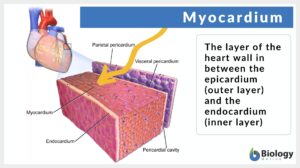Search Results for: acute
Acute febrile illness
Definition From the Latin word febris, meaning fever, an acute febrile illness is a type of illness characterized by a... Read More
Actions of Caffeine in the Brain with Special Reference to Factors That Contribute to Its Widespread Use
IV. Actions of Caffeine on Brain Functions and Behavior Having discussed the molecular and neuronal actions of caffeine,... Read More
Leukocytosis
What Is Leukocytosis? Leukocytosis is a condition wherein the number of White Blood Cells (WBCs) is increased above the... Read More
Bolus injection
A bolus injection is the act of administering a dose of medication or substance directly into the bloodstream by injection.... Read More
Localized peritonitis
Definition noun A type of peritonitis that is confined to a demarcated region of the peritoneal... Read More
Chromosomal mutation
Every living thing is made up of DNA. Our DNA is what makes us unique and different in the world. Our DNA is made up of... Read More
Incubation period
Incubation Period Definition The incubation period is the time duration between exposure to the pathogen and the appearance... Read More
coronavirus COVID-19
Coronavirus Disease 2019 (COVID-19) Coronavirus Disease 2019 (COVID-19) is a contagious coronavirus disease first detected... Read More
Buck’s traction
Buck's Traction Definition Buck's traction for femur fracture is very helpful. It can be utilized in the treatment and... Read More
Glycocalyx
What is the Glycocalyx? The glycocalyx is a polysaccharide-based gel-like, highly hydrous cellular thin layer, covering... Read More
Haemophilus parahaemolyticus
Definition Noun A gram-negative commensal bacterium involved as a causative agent in some human diseases including... Read More
Shoulder-girdle syndrome
Definition noun A neurologic disorder generally of unknown cause and characterized by the acute onset of shoulder pain... Read More
Yellow fever virus
Definition noun, plural: yellow fever viruses A Flavivirus species containing positive-sense, single-stranded RNA with about... Read More
Luteinizing hormone
Definition noun, plural: luteinizing hormones A gonadotropin released by the gonadotropes of the anterior pituitary, and,... Read More
Myocardium
Myocardium Definition What is the myocardium of the heart? It is the muscular middle layer of the heart that is... Read More
Generalized peritonitis
Definition noun A type of peritonitis affecting the entire abdomen, and in which the abdominal tenderness is diffuse and the... Read More
Hyperthermia
Definition noun A condition in which the body temperature is higher than the normal range Supplement Hyperthermia pertains... Read More
Hypertonic solution
Hypertonic Solution Definition Hypertonic solution is a relative term that describes the solution having a higher amount of... Read More
Lycinibacillus fusiformis
Definition noun A long rod-shaped obligate aerobe organism that is able to utilize oxygen to metabolize numerous sugars... Read More
Hexosaminidase A
Definition noun A hydrolytic enzyme implicated in the breakdown of ganglioside producing... Read More
Serous exudate
Definition noun A type of exudate that forms as a clear, thin, watery fluid with relatively low protein content, usually... Read More
Sphenopalatine ganglioneuralgia
Definition noun The medical or scientific term for brain freeze Supplement The sphenopalatine ganglioneuralgia is a type of... Read More
Synergistic effect
Synergistic Effects Definition In biology, synergistic effects are the effects when chemical substances or biological... Read More
Wedge spirometer
wedge spirometer A waterless spirometer constructed of two large rectangular plates with edges connected by... Read More
Saccharide
Saccharide Definition What is a saccharide molecule? A saccharide is the unit structure of carbohydrates. In biochemistry,... Read More
Nervous System
THE is the most complicated and highly organized of the various systems which make up the human body. It is the... Read More






















